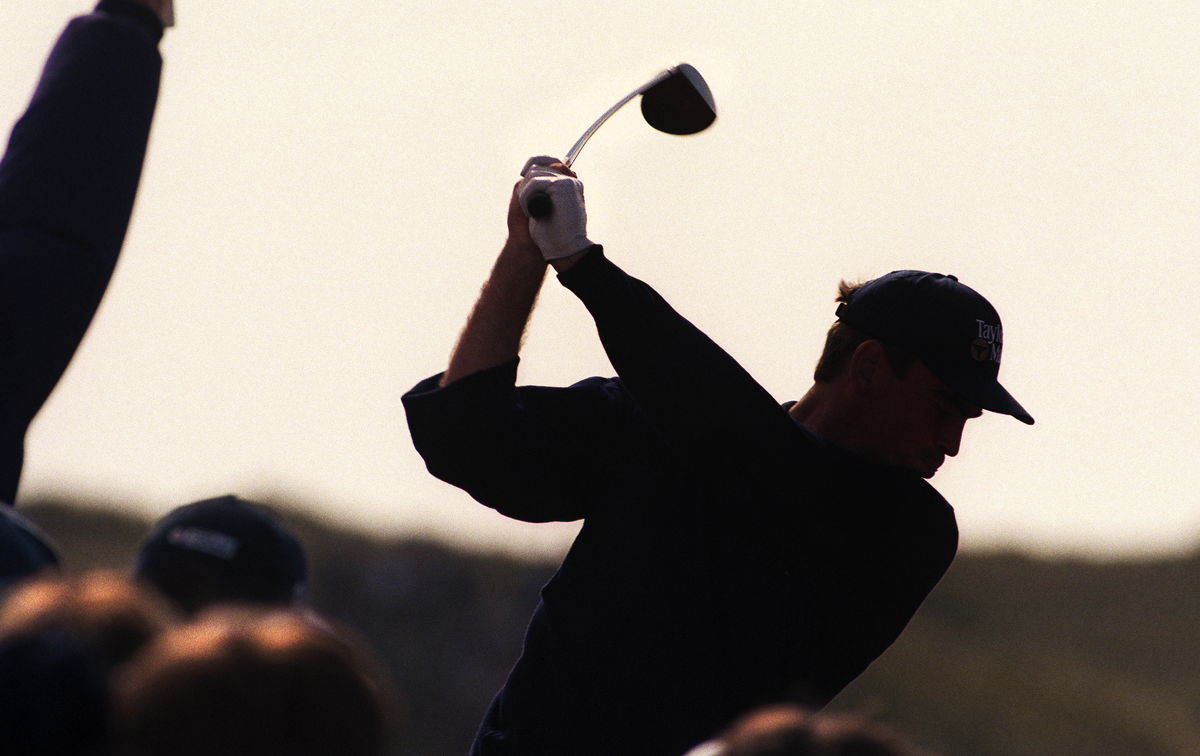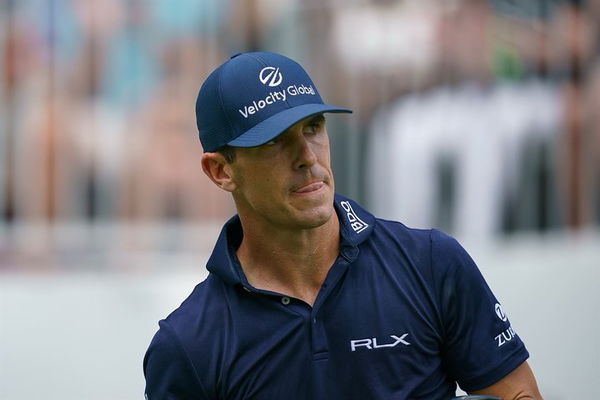
Getty
Silhouetted golfer on the tee during the 127th British Open Golf at Royal Birkdale GC in Southport 16th-19th July 1998. (Photo by David Ashdown/Getty Images)

Getty
Silhouetted golfer on the tee during the 127th British Open Golf at Royal Birkdale GC in Southport 16th-19th July 1998. (Photo by David Ashdown/Getty Images)
You don’t have to be a Tour pro to know when a shot is bad. You can feel it from your couch. The ball comes off the club wrong, ends up short, bounces sideways, sails long, whatever it is, you just know. And when that happens, sometimes you want the guy in the booth to say it: “That was terrible.” Not, “Oh, he’s just trying to control the spin.” And lately, according to Billy Horschel, that kind of honesty is exactly what’s missing from today’s golf broadcasts.
Watch What’s Trending Now!
On the Fried Egg Golf podcast, Billy Horschel didn’t hold back. The 2024 Open runner-up had plenty to say, not just about the Claret Jug slipping through his hands, but about the networks covering the sport. CBS and NBC, he said, aren’t being real enough. They’re playing too nice, too “cherry,” as he put it. And for fans and players alike, that sugarcoating isn’t cutting it anymore.
“I think some of the analyst is too cherry a little bit,” Horschel said, speaking with clear frustration. “You need that Johnny Miller in there.” For Horschel, this isn’t about stirring controversy. It’s about respecting the intelligence of viewers and the integrity of the game. He grew up watching golf, “I’ve always been a golf fan at heart,” he said. And what stood out to him back then was the honesty. He believes that’s missing today.

Imago
Image Courtesy: Billy Horschel, Instagram
Horschel focuses on the frustration of how current golf commentators avoid criticizing poor shots, even in high-pressure moments. He gives an example of a professional golfer, when they hit a wedge from 120 yards and end up 40 feet from the hole, that’s a bad shot. Especially during the final holes of a tournament when the stakes are high. According to Horschel, commentators should be honest about that and not sugarcoat it. He then contrasts today’s coverage with that of former commentator Johnny Miller, who was known for being blunt and direct. Horschel says he has a deeper appreciation for Miller’s style now, especially when watching older broadcasts. He respects how Miller wasn’t afraid to call out mistakes and believes today’s analysts should follow that example.
The heart of his critique? Horschel thinks today’s analysts are worried about keeping relationships with players instead of telling it like it is. “You have to create a relationship to grow on the range and get information and everything,” he said, “but I’m not sure if they’re afraid to be critical because they’re going to lose that aspect of it. And if it is that way, then us as tour players—we’re too soft.” He even gave a specific example.
Sam Burns at the U.S. Open. Final round. Par-4 11th. Burns birdied 10, then faced a second shot up the hill. “When they said he had seven iron, I was like, I don’t think that’s enough club,” Horschel said. “Sam comes up short, gets super unlucky to be plugged… that probably should have been a six-iron there… be a little critical.” This wasn’t about shaming Sam. It was about analysis. It was about telling the audience what they’re really seeing and not brushing over a clear mistake. Horschel’s not just outspoken about TV coverage, but he has never been one to stay quiet when it comes to the way the game itself is run. Whether it’s the state of championship venues or what qualifies as a proper test of skill, he’ll speak his mind.
Horschel gives his take on moving The Open
And Horschel didn’t stop at CBS and NBC. During the same podcast, Horschel made headlines for torching the idea of taking The Open Championship outside the British Isles. The R&A is reportedly considering Portmarnock in Ireland, well within traditional boundaries, but there’s also been talk of expanding beyond. “The stupidest, fr*** thing I’ve ever heard…I’m happy if that goes viral,” Horschel said.
He then continued. “You’re going to move The Open Championship from links style courses, and if you play them on links style courses in other countries, it’s not the same as being played in the UK.” That’s old-school Billy, passionate, blunt, and fiercely loyal to the tradition of the game. “It’s asinine, and I hope it doesn’t happen. I hope it doesn’t. I’m old school, I always want to see it played in the UK.” Horschel praised Portmarnock, calling it “great” and reminiscing about his experience there during a Walker Cup practice session. But the thought of going beyond the British Isles? Absolutely not.
The 153rd Open Championship is back at Royal Portrush from July 17–20, and the drama is already building. Xander Schauffele, last year’s champion, will be there. So will Jordan Spieth, J.J. Spaun, and plenty of others eyeing the Claret Jug. But Billy Horschel? That’s a maybe. In May, he announced surgery on his right hip, likely sidelining him for most of the season. “First time hitting balls in nearly 2 months,” he said in an Instagram post, showing off a few cautious mid-iron swings. “Feels great to be swinging again.”
Horschel last teed it up at the RBC Heritage in April, finishing 27th, just before his injury sidelined him. And though he’s eyeing a Ryder Cup spot, the path back will be steep if he misses The Open. Still, one can hear the hunger in his voice, whether he’s talking about golf coverage, championship venues, or major ambitions. The guy’s a competitor.


